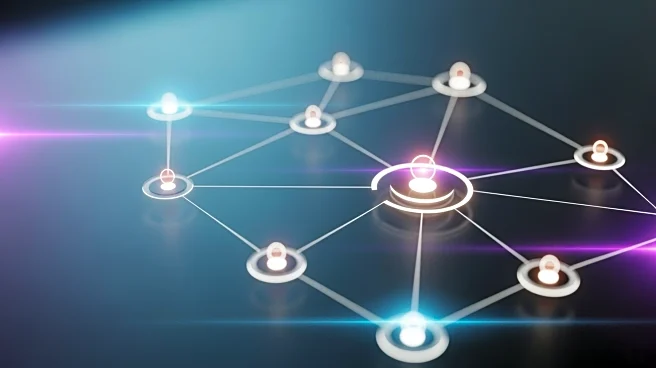What's Happening?
Quora's Poe app has launched a new feature allowing users to engage in group chats with up to 200 participants, utilizing over 200 AI models. This development follows OpenAI's introduction of group chats in select
markets, transforming AI interactions from one-on-one to collaborative experiences. Poe's group chat functionality enables users to collaborate on tasks such as trip planning, brainstorming, and playing trivia games, using various AI models for text, image, video, and audio generation. The feature aims to enhance interactive experiences and expand the use cases for AI in social and collaborative settings.
Why It's Important?
The introduction of group chats in AI applications marks a significant shift in how users interact with AI technologies. By enabling collaborative experiences, Poe's app expands the potential for AI to facilitate teamwork and social engagement. This development could lead to new applications in education, business, and entertainment, where group collaboration is essential. The ability to integrate multiple AI models into a single conversation enhances the versatility and functionality of AI tools, potentially driving innovation in various sectors. As AI becomes more integrated into social interactions, it may reshape how people collaborate and communicate.
What's Next?
Quora plans to continue improving the group chat feature based on user feedback, potentially introducing new functionalities and expanding the range of AI models available. The success of this feature could prompt other AI developers to explore similar collaborative applications, leading to increased competition and innovation in the AI industry. As group chats become more prevalent, there may be a focus on enhancing the security and privacy of these interactions, ensuring that users can collaborate safely and effectively. The evolution of AI-mediated group interactions could drive further advancements in AI technology and its applications.
Beyond the Headlines
The expansion of AI into collaborative spaces raises questions about the role of technology in social interactions and the potential for AI to influence group dynamics. As AI becomes more integrated into everyday communication, there is a need to consider the ethical implications of AI-mediated interactions and the impact on human relationships. The ability of AI to facilitate collaboration and creativity could lead to new forms of social engagement, but it also requires careful consideration of privacy and security concerns. The long-term effects of AI-driven collaboration on society and culture remain to be seen.











